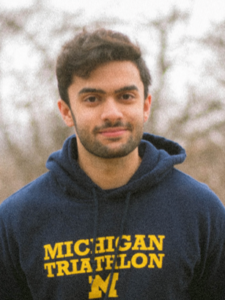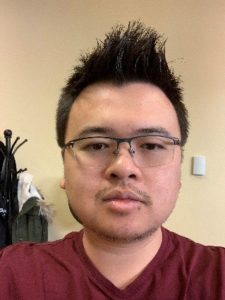Abstract:
As the automotive market for Advanced Driving Assistance Systems (ADAS) continues to grow, Subaru wants to implement more driver – assistance systems to further improve accessibility to their cars. This aligns with our goals of inclusion in helping those that are physically unable to open doors easily, as well as improving the user experience and convenience. Students will be expected to develop their skills in a range of topics, from computer vision and machine learning to finite element analysis or simulation development. Other elements of this project can include electrical integration, system planning, and mechanical design. Subaru wants the door to be designed to fit onto an existing vehicle with minimal changes to the structure, and to implement new or existing sensors that can determine the intent of the driver to enter the vehicle, opening the door for the user once confirmed.
Impact:
The ability to develop improved accessibility systems will provide Subaru with a more inclusive automotive design, leading to more effective and desirable systems. This will increase driver safety and comfort, customer satisfaction, and thereby Subaru’s position in the automotive market.
Electronic Sensor Systems Development (2-3 students)
Specific Skills: Sensor selection and integration.
Prior or concurrent coursework and/or practical experience EECS 215: Introduction to Electrical Circuits/EECS 314: Electrical Circuits, Systems, and Applications or Applied Electrical Circuits and Systems.
Likely Majors: CE, EE, ROB, ME
Mechanical Design with Sensor Integration (1-2 students)
Specific Skills: Mechanical design/Incorporation of a wide range of sensors into a greater system.
Basic knowledge of embedded systems, signal processing, etc. Priority given to students who have completed EE CS 315 (or equivalent) and/or have sensor integration experience.
Likely Majors: ME, ROB, ISD-AUTO, ISD-GAME
Computer Vision and Machine Learning (2-3 students)
Specific Skills: Computer vision for user recognition and machine learning to determine intent of user to open door.
Priority given to students who have completed EECS 442/445/492 (or equivalent) and/or have relevant experience.
Likely Majors: CS, ROB, CE, EE
Main Mentor

Kai Shiefer
Engineer – ADAS & Vehicle Performance Engineering
Kai has his BSc in Mechanical Engineering and MSc in Systems Engineering and Design from the University of Michigan. His primary focus area is ADAS.
He enjoys traveling around the world, and took a 3 – month road trip across the US and into Mexico on his motorcycle, and used to be on the UMich dance team, FunKtion.
Executive Mentor

John Hoo
Assistant Manager – ADAS & Vehicle Performance Engineering
John has been working for Subaru since 2017. He has his BSc in Materials Science & Engineering from Purdue University. His primary focus area is ADAS. John received further training from Subaru in the USA and Japan,
where he developed cross – language and cultural communication skills. To ensure the success of collaborative research efforts, he recently relocated to Michigan. He likes building PCs and motorcycling.
Faculty Mentor
 P.C. Ku
P.C. Ku
Professor, Electrical Engineering
Professor Ku’s research focuses on energy-efficient optoelectronics using nanostructured materials; for example, how to reduce the laser threshold, how to increase the efficiency of light-emitting diodes and solar cells, how to efficiently transmit the data while maintaining the security, and how to reduce the power requirement for nonlinear optical devices.
Course Substitutions: CE MDE, ChE Elective, CS Capstone/MDE, EE MDE, CoE Honors, ISD AUTO 503, ISD GAME 503, MECHENG 490, MECHENG 590, ROB 590, SI Grad Cognate
Citizenship Requirements:
- This project is open to all students on campus.
- International students on an F-1 visa will be required to declare part-time CPT during Winter 2023 and Fall 2023 terms.
IP/NDA: Students will sign IP/NDA document(s) that are unique to Subaru R&D.
Internship/Summer Opportunity: Students who have the legal right to work in the US will be guaranteed an interview for a 2023 internship. The interviews will take place by the end January of 2023. The internship program may not be confined to the project’s subject matter.
